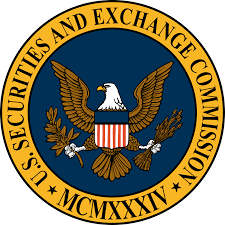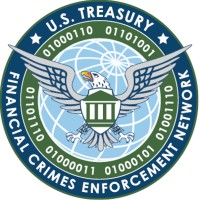The SEC and FinCEN are updating key aspects of beneficial ownership regulation.

Grygo is the chief content officer for FTF & FTF News.
First, we turn to Investopedia for a definition of “beneficial ownership.”
“A beneficial owner is a person who enjoys the benefits of ownership even though the title to some form of property is in another name,” according to the Investopedia website. “It also means any individual or group of individuals who, either directly or indirectly, has the power to vote or influence the transaction decisions regarding a specific security, such as shares in a company.”
Why is this important? Sorting out the beneficial owner leads to identifying the actual owner or owners of securities.
“When shares of a mutual fund are held by a custodian bank or when securities are held by a broker in street name, the true owner is the beneficial owner, even though, for safety and convenience, the bank or broker holds the title,” according to Investopedia. “Beneficial ownership may be shared among a group of individuals.”
The SEC is also offering some background details.
“Exchange Act Sections 13(d) and 13(g), along with Regulation 13D-G, require an investor who beneficially owns more than 5 percent of a covered class of equity securities to publicly file either a Schedule 13D or a Schedule 13G, as applicable,” according to a recent fact sheet about the SEC’s amendments to the beneficial ownership rules. “Changes in the financial markets and technology warrant a reassessment of these filing deadlines and other aspects of the beneficial ownership rules to meet the needs of today’s investors and other market participants.”
 Early last month, the SEC “amended beneficial ownership reporting … The amendments update Regulation 13D-G to require market participants to provide more timely information on their positions to meet the needs of investors in today’s financial markets,” according to the initial announcement.
Early last month, the SEC “amended beneficial ownership reporting … The amendments update Regulation 13D-G to require market participants to provide more timely information on their positions to meet the needs of investors in today’s financial markets,” according to the initial announcement.
“Today’s adoption updates rules that first went into effect more than 50 years ago. Frankly, these deadlines from half a century ago feel antiquated,” says SEC Chair Gary Gensler in a prepared statement.
“In our fast-paced markets, it shouldn’t take 10 days for the public to learn about an attempt to change or influence control of a public company. I am pleased to support this adoption because it updates Schedules 13D and 13G reporting requirements for modern markets, ensures investors receive material information in a timely way and reduces information asymmetries,” Gensler says.
In an SEC summary, the amendments:
- Shorten the deadlines for initial and amended Schedule 13D and 13G filings;
- Clarify the Schedule 13D disclosure requirements with respect to derivative securities; and
- Require that Schedule 13D and 13G filings be made using a structured, machine-readable data language.
The SEC also approved guidance regarding:
- The application of the current beneficial ownership reporting rules to an investor’s use of certain cash-settled derivative securities; and
- The application of the current legal standard found in Sections 13(d)(3) and 13(g)(3) of the Securities Exchange Act of 1934 to certain common types of shareholder engagement activities.
About a month after the SEC, the Financial Crimes Enforcement Network (FinCEN), a bureau of the U.S. Treasury, in a parallel move finalized a rule on the usage of “FinCEN Identifiers” when reporting beneficial ownership information.
“A FinCEN identifier is a unique number that FinCEN will issue upon request after receiving required information. Although there is no requirement to obtain a FinCEN identifier, doing so can simplify the reporting process and allows entities or individuals to provide the required identifying information directly to FinCEN,”
The final rule “specifies the circumstances in which a reporting company may report an entity’s FinCEN identifier in lieu of information about an individual beneficial owner,” according to the announcement.
 The final rule is intended to address “commenter concerns that the reporting of entity FinCEN identifiers could obscure the identities of beneficial owners in a manner that might result in greater secrecy or incomplete or misleading disclosures. The final rule provides clear criteria that must be met in order for a reporting company to report an intermediate entity’s FinCEN identifier in lieu of information about the individual beneficial owner.”
The final rule is intended to address “commenter concerns that the reporting of entity FinCEN identifiers could obscure the identities of beneficial owners in a manner that might result in greater secrecy or incomplete or misleading disclosures. The final rule provides clear criteria that must be met in order for a reporting company to report an intermediate entity’s FinCEN identifier in lieu of information about the individual beneficial owner.”
The final rule takes effect Jan. 1, 2024, to align with the effective date of the Beneficial Ownership Information (BOI) Reporting Rule, according to FinCEN.
All of this will hit home on Jan. 1, 2024, when “many companies in the United States will have to report information about their beneficial owners, i.e., the individuals who ultimately own or control the company, to FinCEN,” the bureau reminds.
It’s quite useful to know who actually owns securities and, ultimately, companies. It’s essential for fighting financial crime and avoiding the inadvertent funding of terrorist organizations.
In fact, FinCEN has just issued a “Red Alert” about Beneficial Ownership Information Reporting
“FinCEN has been notified of recent fraudulent attempts to solicit information from individuals and entities who may be subject to reporting requirements under the Corporate Transparency Act. The fraudulent correspondence may be titled “Important Compliance Notice” and asks the recipient to click on a URL or to scan a QR code,” according to the alert. “Those e-mails or letters are fraudulent. FinCEN does not send unsolicited requests. Please do not respond to these fraudulent messages or click on any links or scan any QR codes within them.”
More about FinCEN’s efforts can be found here: https://www.fincen.gov/boi
More about the SEC’s efforts can be found here: https://bit.ly/3szY8W2
Given the urgency of the Red Alert, it looks like the SEC and FinCEN made their changes just in time.
Need a Reprint?